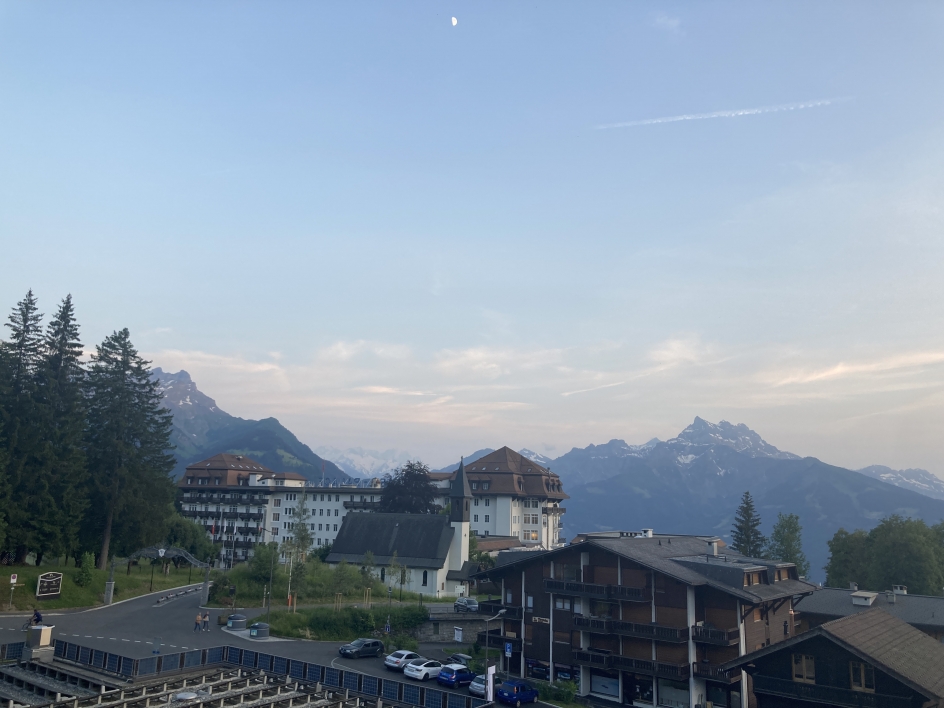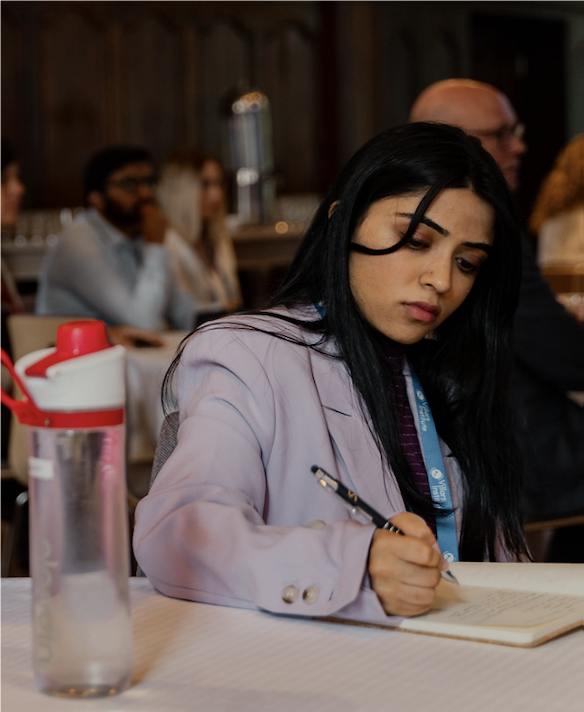Global sustainability course prepares students for international symposium, to be future leaders in field
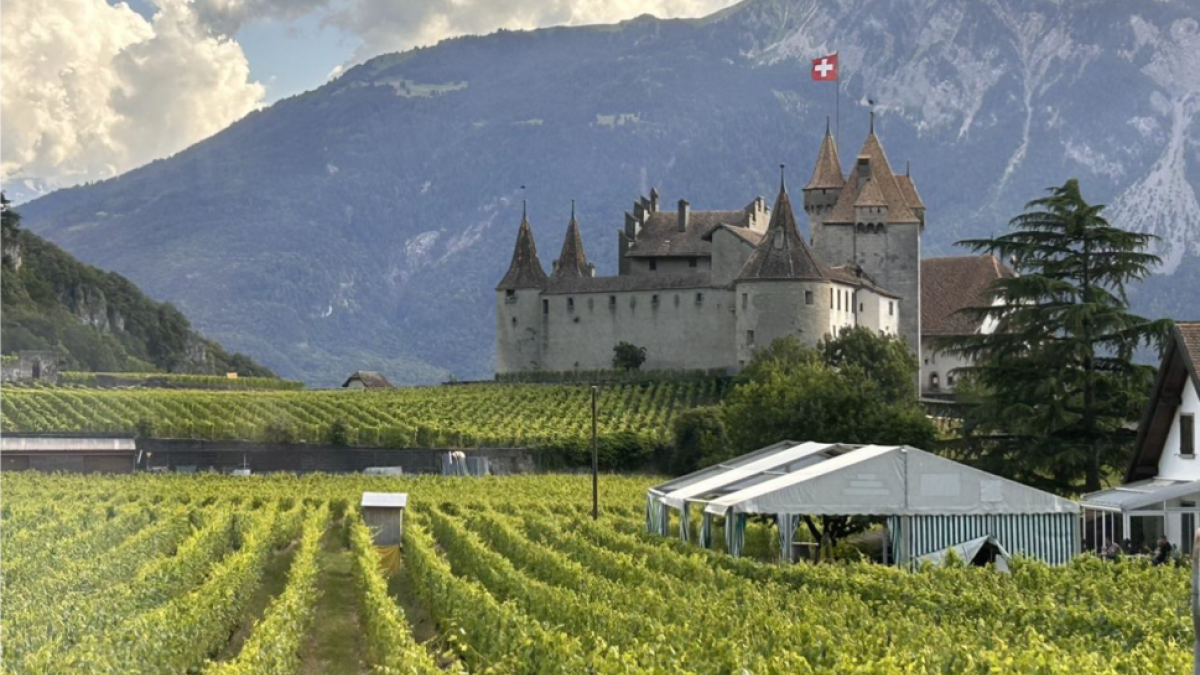
Last semester three students in Barrett, The Honors College at ASU, received funding to attend the 2023 Villars Symposium in Switzerland. Photo by Shravya Aragam
For three Arizona State University students, the fresh air and picturesque landscapes weren’t the only invigorating features of their summer trip to Switzerland.
Last semester, Shravya Aragam, Chase DiBona and Diana Rodee, all students in Barrett, The Honors College at ASU, took Global Development Agenda and Beyond, a course taught by former United Nations Ambassador Amanda Ellis, and received funding from the honors college to attend the 2023 Villars Symposium held June 27–30 in Villars, an Alpine village near Geneva.
During the symposium, the students supported and interacted with global sustainability leaders like former Irish President Mary Robinson, who chaired a summit of global leaders.
“It was very inspirational and incredible to hear her speak and a really interesting opportunity that emphasized the importance of youth leadership in helping solve global issues and having an open mind when learning to understand the world around you,” said DiBona, a junior majoring in justice studies and civic and economic thought and leadership.
In the ASU course that prepared DiBona for the experience, students learn about the history of the global multilateral system, the United Nations Sustainable Development Goals (SDGs) and their interlinkages, and hear from a range of local and global experts.
“The global context and experiential learning opportunities provided (in the course) are a huge benefit to all students interested in connecting with global leaders and contributing to solving global challenges, no matter which discipline they are majoring in,” said Ellis, senior director of global partnerships and networks for the ASU Global Futures Laboratory.
Global Development Agenda and Beyond is being offered again in the spring 2024 semester. Course registration for honors students begins Oct. 16.
Snowy mountaintops are visible in the distance from a Villars, Switzerland viewpoint. Photo by Diana Rodee
In the upcoming semester, students will do a deep dive on one of two practical group projects: ASU Plastic Free Campus and the Women Entrepreneurs U.N. SDG Challenge launched by the U.N. secretary general in 2018, Ellis said.
Several students in next spring’s class will have the opportunity to be selected to attend the 2024 Villars Symposium with support from Barrett Honors College and ASU Global Futures Laboratory.
While in Villars, DiBona, Aragam and Rodee all found inspiration for ways to contribute to global and local sustainability agendas.
DiBona served as an intern for the Global Climate Governance Commission deliberations led by Robinson, while Aragam and Rodee were selected as Villars Fellows and participated in innovative programming with other international attendees.
“I was so honored to be selected as a Villars Fellow,” said Aragam, a sophomore business management major. “Going to Geneva was literally like a dream come true.”
Shravya Aragam, a sophomore in Barrett, The Honors College at ASU, takes notes at the 2023 Villars Symposium in Switzerland. Photo courtesy Villars Institute
Aragam had never been to Europe before the Villars Symposium, where she attended a lecture by 2019 Nobel laureate in physics Didier Queloz and a workshop led by international trade law and policy expert Jan Yves Remy on the role of the trading system to accelerate the transition to a net-zero economy and to restore the health of the planet.
Aragam said she was inspired by Remy’s talk that pointed out “how society should stop subsidizing environmental harm and … become more nature positive” to create a project to reduce the use of health-related plastics, such as masks and hand sanitizer bottles at ASU.
Rodee, a senior majoring in sustainability and data science with a minor in Spanish, said she benefited greatly by taking Ellis’ course and attending the Villars Symposium.
“Because of the knowledge I gained on the Sustainable Development Goals and the United Nations, I hope to someday actually work on SDG implementation in an international environment,” she said, adding, “I found the seminars and sessions at the symposium to be invaluable sources of inspiration, and I was grateful for the view into the cutting-edge work many of these individuals are doing in their fields and how each is contributing to sustainable systems change in their own way.
“It was a perfect example of the collaboration and diversity of perspective and skill set that is not only helpful, but inherently necessary, in solving the most complex issues of our time. The symposium was also a great opportunity to meet other young people who are passionate about sustainability and systems thinking, as well as to learn about new opportunities for moving forward.”
More Environment and sustainability
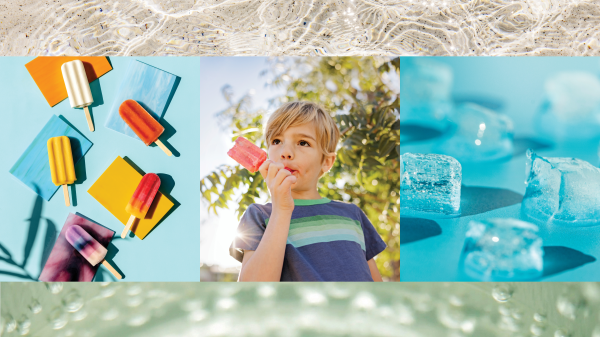
A water fix that takes on the yuck factor
Written by Christy Spackman, an ASU assistant professor and senior global futures scientist. This essay is adapted with…
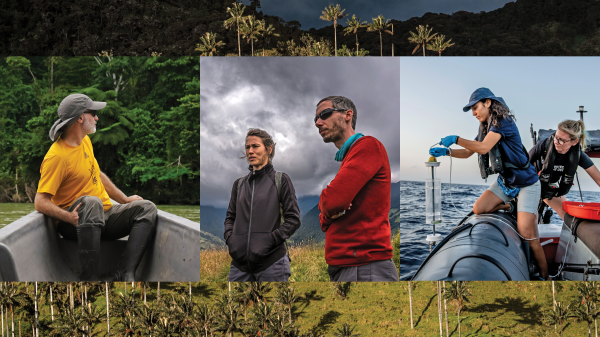
At home in the wild
By Kristin ToussaintEditor's note: This story is featured in the winter 2025 issue of ASU Thrive.Way up in the Andes mountains in…

Switching to 'green' plastic alone won’t solve the plastic problem, study shows
Plastic is everywhere. Today alone, you have probably already touched a whole lot of it, whether it’s your phone case, sunglasses…
